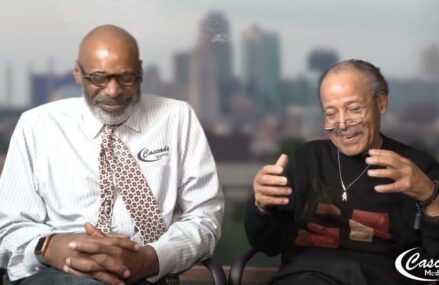By MUNIR AHMED and SEBASTIAN ABBOT
In this Monday, April 15, 2013 photo, Pakistan’s former President and military ruler Pervez Musharraf addresses his party supporters at his house in Islamabad, Pakistan. Police arrested former Pakistani military ruler Pervez Musharraf overnight at his home in the capital, where he had holed up following a dramatic escape from court to avoid being detained, officials said Friday. (AP Photo/B.K. Bangash)
ISLAMABAD (AP) — Former Pakistani military ruler Pervez Musharraf criticized allegations against him as “politically motivated” Friday, following his arrest in a case involving his decision to fire senior judges while in power.
Musharraf was arrested a day after he made a dramatic escape from a court in Islamabad on Thursday to avoid being detained. Musharraf fled the Islamabad High Court in a speeding vehicle and holed up in his home on the outskirts of the city after a judge rejected his bail and ordered his arrest.
It was a new low in Musharraf’s troubled return from self-imposed exile last month to attempt a political comeback in the upcoming parliamentary election.
There were conflicting reports about how Musharraf was arrested Friday.
Police said they arrested Musharraf overnight from his home and delivered him to a magistrate in Islamabad on Friday morning. But the secretary general of Musharraf’s party, Mohammed Amjad, claimed the former military ruler surrendered himself before the magistrate.
Local TV video showed Musharraf entering the court surrounded by a heavy security detachment of police and paramilitary soldiers.
The magistrate instructed police to keep Musharraf in their custody and present him before an anti-terrorism court, said one of his lawyers, Malik Qamar Afzal.
Police then returned Musharraf to his home on the outskirts of Islamabad, where he was held for several hours under house arrest, said police officer Mohammed Rafique.
He was later taken to a rest house the main police headquarters in Islamabad, where he will be held until he is presented before an anti-terrorism court, said two police officials, speaking on condition of anonymity because they were not authorized to brief reporters. He is expected to appear before a court in the next 48 hours, they said.
“These allegations are politically motivated, and I will fight them in the trial court, where the truth will eventually prevail,” Musharraf said in a message posted on his Facebook page Friday after he was arrested.
Musharraf’s arrest ended an awkward situation in which the former military ruler was being protected by security forces for hours while holed up in his house, but none of them made a move to detain him. They were likely awaiting orders from senior officials trying to figure out how to deal with the delicate situation.
Pakistan’s temporary caretaker government has been reluctant to wade into the controversy surrounding Musharraf since he returned last month, especially given his position as a former chief of the army, considered the most powerful institution in the country.
His return also presents complications for the current army chief, Gen. Ashfaq Parvez Kayani, who may have to decide whether to intervene to protect Musharraf, sparking a new conflict with the judiciary, or watch him be prosecuted. If Musharraf is sent to prison, it would be the first time an army chief has been put behind bars in the country’s 65-year history.
Musharraf seized control in a coup in 1999 and spent nearly a decade in power before being forced to step down in 2008. Despite legal challenges and Taliban death threats, he returned last month after four years in London and Dubai.
But he has received paltry public support, and earlier this week he was disqualified from running in the May 11 election because of his actions while in power. A court has also barred him from leaving the country.
The upcoming vote is historic because it will mark the first time in Pakistan that parliament has completed its full five-year term and handed over power in democratic elections. The country has experienced three military coups and constant political instability since it was founded in 1947.
Thursday’s case before the Islamabad High Court involved Musharraf’s decision to dismiss senior judges, including the chief justice of the Supreme Court, when he declared a state of emergency and suspended the constitution in 2007. He was concerned the judges would challenge his re-election as president, citing the growing Taliban insurgency in the country as justification for the state of emergency.
Musharraf’s crackdown on the judges outraged many Pakistanis and fueled a nationwide protest movement by lawyers that eventually resulted in him stepping down under threat of impeachment.
Musharraf is facing a raft of other legal challenges, including allegations before the Supreme Court that he committed treason while in power. He has not formally been charged with treason because the government would have to file charges, which it has not done.
The Senate passed a unanimous resolution Friday demanding Musharraf be tried for treason, Pakistan state TV said.
Musharraf also faces legal charges in two other cases. One involves allegations that Musharraf didn’t provide adequate security to former Prime Minister Benazir Bhutto, who was killed in a gunfire and suicide attack in 2007. The other relates to the death of a nationalist leader in Baluchistan in 2006.
Given the legal challenges and Taliban threats against Musharraf, many experts have been left scratching their heads as to why he returned. Some have speculated he misjudged the level of public backing he would get, while others suggested he was simply homesick.
____
Associated Press writer Zarar Khan contributed to this report.



